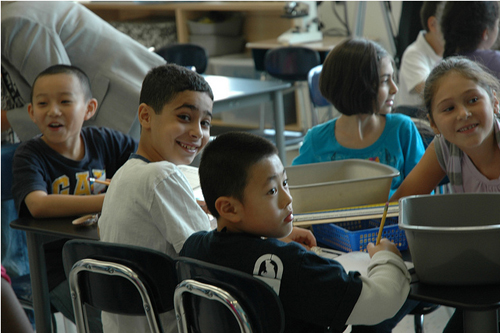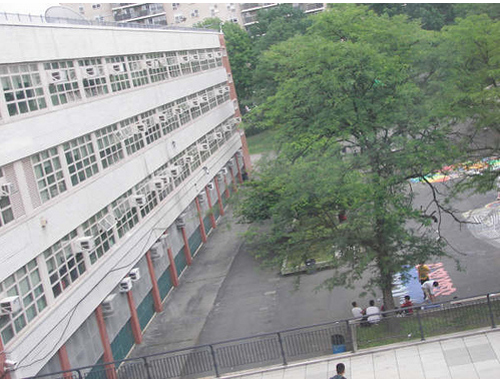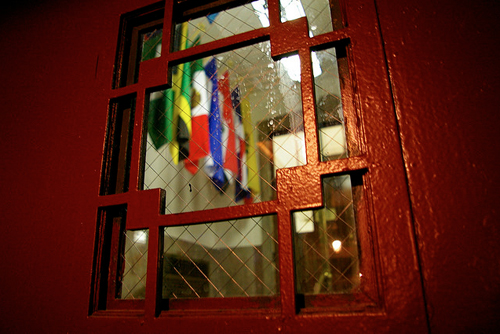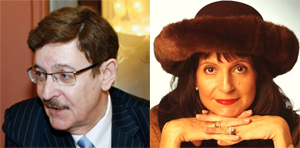
"With our future as a nation at stake, we need to be bold for our schools to be successful with all children." -- Eric Nadelstern
A Bronx native and graduate of DeWitt Clinton High School, Eric Nadelstern worked in New York City public schools for 39 years, rising to the position of Chief Schools Officer, Division of School Support in 2009, and to the position of Deputy Chancellor for the Division of School Support and Instruction for the New York City Department of Education in 2010, from which he retired last year. He is currently Professor of Practice in Education Leadership at Teachers College, Columbia University, from where he received a Master of Arts degree in 1973. I had the opportunity to chat with Professor Nadelstern about the issues that face the New York City public school system.
What are the problems we face in the New York City public school system?
We are spending $23 billion of the public's hard earned money in New York City every year to support the country's largest school district, and yet 35 percent of the students are not graduating from high school. The good news is just a few years ago it was half the students, and things had been frozen at that rate for the prior 50 years. Still, 35 percent are not graduating and the 35 percent who aren't are largely male, African American and Latino. This is significant evidence that despite everything we are doing, we haven't been able to close the achievement gap in the city.
What I think differentiates New York from some other countries in the world that I have visited or am familiar with is that we recognize there is an achievement gap. This contrasts with Israel which runs five separate and unequal school systems. Their primary concern, as in many other places, is to produce the few outstanding mathematicians and scientists who can compete with other countries, compared to thinking about educating the entire population to their highest potential.
In America, it is not that we aren't producing enough college graduates. It's that the students who are most likely to graduate are disproportionately white, Asian, and female in large urban areas versus male, African American, and Latino. You can still walk into a kindergarten class in New York City on the first day of school, and simply on the basis of race and how kids are dressed, predict with frightening accuracy which kids are likely to graduate 13 years later. To my mind, that is an intolerable situation and an indication of seated societal issues that we have not begun to address.
Why is the public school system to blame for this?
I'll give you one example of how we exacerbate the problem, however unintentionally. For years in New York City we had a seniority transfer plan. The most senior and consequently most expensive teachers could transfer into middle class schools in areas where they were needed least. That created a situation in our poorest neighborhoods of the revolving door of the newest teachers. This went on decade after decade, seemingly with the approval of those in management positions.

"The astonishing thing is why there isn't a greater sense of outrage from people who work in the system." -- Eric Nadelstern
What should be the goal of the public education system?
I am a product of public education. My parents were Holocaust refugees who came to this country a few years before I was born. I was the first member of my family to graduate from high school, let alone go to college. I understand how critical a public education is. To my mind, that is the American ideal.
So what things would you change and how would you make them better?
Initially, we were going in the right direction. We had a mayor who wasn't beholden to the politicians or other interest groups. He didn't seem to have personal ambitions beyond doing the best job he could. He was prepared to take courageous steps to address the issues. As time goes on, people invariably become seduced by the system. Joel Klein used to say I was groomed by the system to run the system but instead I chose to dismantle it, and that is what recommended me to him in the first place. My need was to change things in order to make them better.
In New York, you would have to tell people living in $4 million dollar coops on the Upper East Side that their kids would have as much chance of going to P.S. 199 as a kid in destitute circumstances in the Bronx; and that the school system was going to make sure that the kid in destitute circumstances had the same chance. Could you do that for very long? I don't know, but that is what you need to do. When we were in a position to do it, we didn't have the courage to do it.
I am of a mind that if schools fail to perform their function, it is more efficient and more effective to close them and give others an opportunity to do better. We closed dozens of large underperforming schools, primarily high schools, and replaced them with over 500 new small schools. Those new small schools, according to research, are graduating students from high school at a rate of eight percentage points more than the average school. That was moving in the right direction.
What can schools do about factors affecting kids outside of school?
Schools have little control once the kids leave them. Historically, we used that as an excuse for failure. The better schools create opportunities for parents to feel welcome in the school and even begin to address the needs of the students' families. For example, they'll offer immigration counseling or computer classes in the evening. Some schools partner with community organizations that are able to deal with the needs of the whole family. However, the truth is schools have limited capacity to have an impact on students' families.

"I understand how critical a public education is. To my mind, that is the American ideal." -- Eric Nadelstern
Tell me more about schools that were going in the wrong direction and what went wrong.
I'll give you some examples. We closed Stevenson High school. The school had 1800 student absences by Christmas, and no person in the building understood his responsibility. The attitude was it is the parent's job to make sure the kid comes to school. In South Bronx High School, 20 percent of the kids made it to junior year. I met with the principal and his cabinet, and their attitude was shocking. They did not understand why I was so disturbed by that statistic because it had always been that way. If I wanted to see it any different, I would have to give them a better building; I would have to give them better supplies and materials; I would have to send them better teachers; I would have to pay them more; and I would have to send them better kids. If I sent them better kids, I would see how great they were.
At Morris High School there were 1700 kids enrolled. 1100 of them were freshmen. Year after year, the DOE sent them hundreds of 9th graders, and most of those kids never made it out of 9th grade. When I visited the school, one kid had written F... You in red letters across the back door of the building, and no one understood his responsibility to wipe that off as quickly as possible.
The astonishing thing is why there isn't a greater sense of outrage from people who work in the system. The reality is we are becoming inured to failure. The people in the system are not necessarily the ones to blame for this. It is the structure we have given them. The rules and conditions under which they operate lead them to believe that nothing makes sense and nothing will ever change.
What would be the priority actions that you would take to improve the New York City public school system?
With our future as a nation at stake, we need to be bold for our schools to be successful with all children. What I would recommend is:
- Unzone all schools and give every child an equal opportunity by lottery to attend any school.
- Continue to close low performing large schools and replace them with campus communities of smaller, more successful ones.
- Decentralize authority to the school level and hold principals and teachers accountable for student performance.
- Encourage like-minded schools to network for purposes of mutual support and accountability.
- Significantly reduce central and field operations, and place the money saved directly into school budgets.
- Recruit and reward outstanding principals and teachers.
- Partner with not-for-profit organizations in the community to better serve students and their families.
- Support choice and competition represented by charter schools.
- Invite the private sector to compete in the world of K-12 education.

Eric Nadelstern and C. M. Rubin
Photos courtesy of NYC Department of Education and Eric Nadelstern
In The Global Search for Education, join me and globally renowned thought leaders including Sir Michael Barber (UK), Dr. Michael Block (US), Dr. Leon Botstein (US), Dr. Linda Darling-Hammond (US), Dr. Madhav Chavan (India), Professor Michael Fullan (Canada), Professor Howard Gardner (US), Professor Yvonne Hellman (The Netherlands), Professor Kristin Helstad (Norway), Jean Hendrickson (US), Professor Rose Hipkins (New Zealand), Professor Cornelia Hoogland (Canada), Mme. Chantal Kaufmann (Belgium), Professor Dominique Lafontaine (Belgium), Professor Hugh Lauder (UK), Professor Ben Levin (Canada), Professor Barry McGaw (Australia), Professor R. Natarajan (India), Dr. Denise Pope (US), Sridhar Rajagopalan (India), Dr. Diane Ravitch (US), Sir Ken Robinson (UK), Professor Pasi Sahlberg (Finland), Andreas Schleicher (PISA, OECD), Dr. Anthony Seldon (UK), Dr. David Shaffer (US), Dr. Kirsten Sivesind (Norway), Chancellor Stephen Spahn (US), Yves Theze (Lycee Francais US), Professor Charles Ungerleider (Canada), Professor Tony Wagner (US), Professor Dylan Wiliam (UK), Dr. Mark Wormald (UK), Professor Theo Wubbels (The Netherlands), Professor Michael Young (UK), and Professor Minxuan Zhang (China) as they explore the big picture education questions that all nations face today.
The Global Search for Education Community Page
C. M. Rubin is the author of two widely read online series for which she received a 2011 Upton Sinclair award, "The Global Search for Education" and "How Will We Read?". She is also the author of three bestselling books, including The Real Alice in Wonderland.
